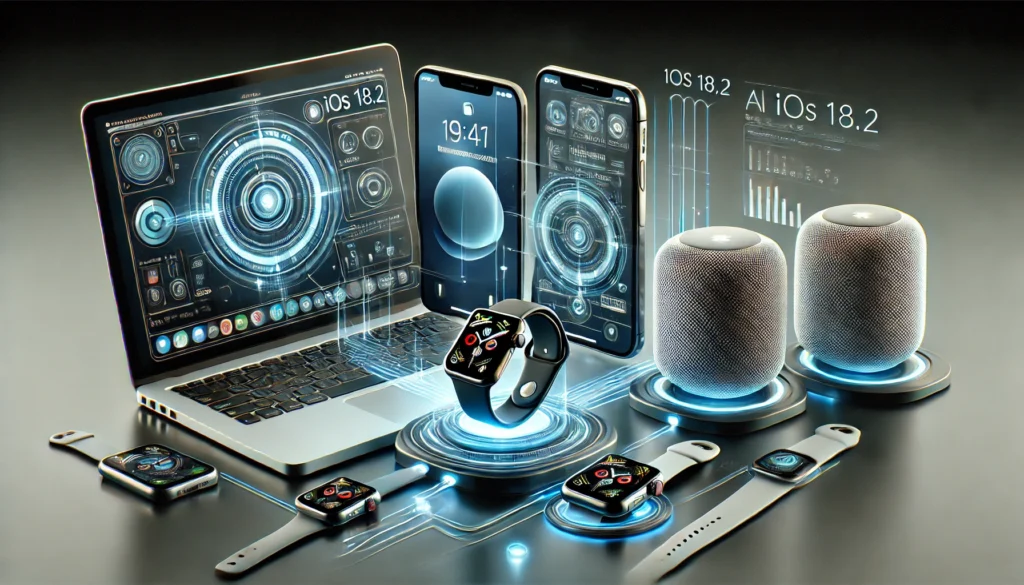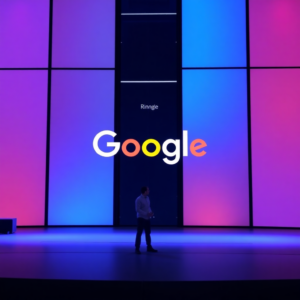IOS 18.2, Apple Delivers the Ultimate AI Integration Toolkit

Apple has long been at the forefront of technological innovation, consistently pushing the boundaries of what smartphones and devices can achieve. With iOS 18.2, the tech giant has cemented its position as a leader in artificial intelligence (AI) integration for everyday users. The release marks the culmination of Apple’s strategic efforts to embed AI across its ecosystem, offering a “starter kit” for developers, consumers, and enterprises alike. This article delves into the features, implications, and potential future impacts of iOS 18.2’s AI capabilities.
A Seamless AI Experience for Users
The cornerstone of iOS 18.2 is its focus on user-centric AI. Apple’s latest operating system integrates machine learning (ML) and natural language processing (NLP) in ways that enhance usability without overwhelming users with technical jargon. At its heart, the update emphasizes simplicity and accessibility.
- Smart Personal Assistant Upgrades: Siri, Apple’s long-standing digital assistant, has undergone a major overhaul. With iOS 18.2, Siri gains contextual awareness and advanced conversational capabilities powered by generative AI. For example, Siri can now offer detailed explanations, suggest creative ideas, and engage in multi-turn conversations that feel natural.
- Proactive Notifications and Actions: The AI engine analyzes usage patterns to deliver proactive suggestions. For instance, if you’re planning a trip, Siri can automatically suggest packing checklists, weather updates, and local guides.
- On-Device Processing for Privacy: Staying true to its commitment to user privacy, Apple has incorporated advanced on-device AI models that ensure data never leaves your device. This not only boosts performance but also alleviates concerns about data breaches.
Developer Opportunities: AI APIs and Frameworks
iOS 18.2 is not just about enhancing user experience; it’s also a robust platform for developers. The release introduces several new APIs and frameworks that make it easier for developers to integrate AI into their applications.
- CoreML 4.0: Apple’s machine learning framework receives a significant update with support for larger models, real-time inference, and federated learning. Developers can now deploy state-of-the-art AI models that adapt to user behavior while maintaining privacy.
- VisionKit and SpeechKit Enhancements: These tools enable apps to perform advanced image recognition, text-to-speech, and speech-to-text conversions. The integration of generative AI also allows for creative outputs, such as generating captions or writing summaries from videos.
- AI Workbench: Apple introduces an AI Workbench—a dedicated tool for training and fine-tuning models directly on the device. This tool lowers the barrier to entry for app developers looking to experiment with AI.
AI in Daily Applications
With iOS 18.2, Apple has redefined how AI integrates into daily activities. From communication to productivity, the operating system enhances numerous aspects of life.
- Messages and Mail: Smart compose features powered by NLP make drafting emails and texts faster. Predictive responses and grammar corrections save time and reduce errors.
- Photos and Videos: The Photos app now uses generative AI to create dynamic albums, suggest edits, and even generate synthetic backgrounds for images. Video editing tools include AI-powered scene detection and automatic transitions.
- Health and Fitness: With AI, the Health app offers personalized insights, such as early detection of irregular patterns in heart rate or activity levels. AI-driven coaching features provide tailored workout plans and mindfulness routines.
The Role of AI in Accessibility
Accessibility has always been a core focus for Apple, and iOS 18.2 leverages AI to break down barriers for users with disabilities. Features such as voice-controlled navigation, real-time captioning, and object recognition empower a wider audience to use Apple’s ecosystem effectively. For instance:
- Assistive AI for the Vision Impaired: Using advanced computer vision, the iPhone can describe scenes, identify objects, and even read aloud text in real time.
- Hearing Assistance: The integration of AI with AirPods Pro enables live transcription of conversations and enhanced ambient sound filtering for users with hearing impairments.
Ecosystem-Wide Integration
The impact of iOS 18.2 extends beyond iPhones and iPads, integrating seamlessly with Apple’s broader ecosystem. The AI features enhance the functionality of devices like the Apple Watch, HomePod, and MacBook.
- Apple Watch: Personalized health insights and workout recommendations are shared across devices. For example, if your Apple Watch detects unusual heart rate patterns, your iPhone can suggest contacting a healthcare provider.
- HomePod and Smart Home: iOS 18.2 powers smarter home automation. Siri can now interpret natural language commands, such as “set the mood for a romantic dinner,” and automatically adjust lights, music, and temperature.
- MacOS Compatibility: The cross-platform AI capabilities ensure continuity, enabling users to pick up tasks where they left off, regardless of the device.
Privacy and Security: The Apple Promise
One of the most significant aspects of Apple’s AI strategy is its unwavering focus on privacy. With iOS 18.2, Apple has doubled down on its commitment to safeguarding user data.
- On-Device AI: All processing occurs locally, reducing the need to send data to external servers. This architecture ensures that sensitive information remains within the user’s control.
- Transparency and Control: Users can customize how AI features interact with their data. Detailed transparency reports and privacy toggles give users complete control over their digital footprint.
Industry Implications
The release of iOS 18.2 has significant implications for the tech industry. Apple’s approach to AI—focusing on privacy, accessibility, and developer empowerment—sets a benchmark for competitors.
- Competitive Landscape: Companies like Google and Microsoft, known for their cloud-based AI solutions, may face pressure to adopt more privacy-centric models.
- Enterprise Applications: Businesses can leverage the new AI tools to create powerful apps that enhance productivity and customer engagement. The improved CoreML framework, for instance, allows enterprises to deploy intelligent chatbots, recommendation systems, and predictive analytics solutions.
The Future of AI at Apple
While iOS 18.2 represents a milestone, it’s also a stepping stone. Apple’s roadmap likely includes further advancements in AI, such as augmented reality (AR) integrations, more sophisticated generative models, and expanded developer tools.
- Augmented Reality and AI: The rumored Apple AR headset could benefit from the AI enhancements in iOS 18.2, delivering immersive experiences that blend the digital and physical worlds seamlessly.
- Sustainability Through AI: Apple’s commitment to environmental sustainability could see AI being used to optimize energy usage across devices and improve recycling efforts through intelligent material identification.



